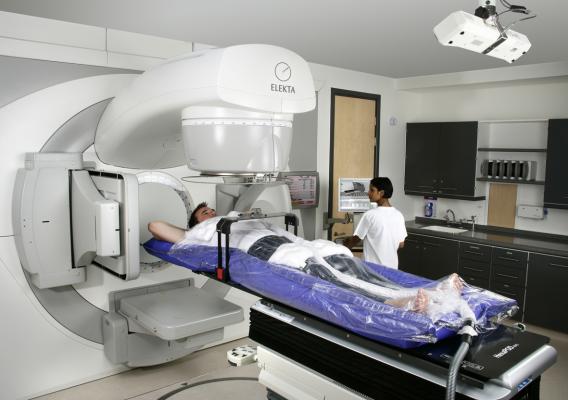
Image courtesy of Elekta
February 26, 2021 — The Radiosurgery Society (RSS), a non-profit medical society dedicated to advancing the science and clinical practice of radiosurgery, announced the launch of a joint accreditation with the American College of Radiation Oncology (ACRO), the professional society for the practice of radiation oncology. The special accreditation program with a “Distinction in Stereotactic Radiotherapy” is the first of its kind within the ACRO Accreditation Program.
The ACRO Accreditation Program was first developed in 1995, consisting of practice standards for radiation oncology. ACRO Accreditation has undergone periodic revisions to reflect clinical and scientific advances within the field, providing for the safe and effective practice of radiation therapy.
Recognizing the rapidly changing landscape of radiation therapy with exceedingly more radiation centers and patients receiving stereotactic radiosurgery (SRS) and stereotactic body radiotherapy (SBRT), RSS and ACRO determined that a comprehensive accreditation program specific to SRS/SBRT clinical practice and physics quality assurance was necessary.
“The collaboration between ACRO and RSS brings together the strengths of both societies in our new offering, ‘Distinction in Stereotactic Radiotherapy,” said Jaroslaw Hepel, M.D., FACRO, Medical Director of the ACRO Accreditation Program. “This accreditation option is a great way for practices to independently evaluate their radiosurgery program and showcase their expertise.”
Accreditation is a voluntary process in which professional peers identify standards indicative of a quality practice, and an audit is conducted to assure that these standards are followed. The Distinction in Stereotactic Radiotherapy program was designed by professional peers with extensive experience treating patients with SRS/SBRT, with the aim to identify standards indicative of a quality practice in the field of SRS/SBRT. The program currently focuses on SRS/SBRT treatments within six (6) disease sites: central nervous system (CNS), spine, liver, lung, pancreas and prostate.
“As the field of SRS/SBRT grows, the availability of an accreditation program specific to its unique requirements becomes even more important. In support of its widespread adoption, the new ‘Distinction in Stereotactic Radiotherapy’ offers independent evaluation using criteria specific to SRS/SBRT, including quality assurance practices, expert reviewers and disease site teams,” said Simon Lo, MB, ChB, FACR, FASTRO, Director of Stereotactic Body Radiotherapy (SBRT) in the Department of Radiation Oncology at University of Washington School of Medicine and Medical Director of the Distinction in Stereotactic Radiotherapy Program. “We believe this specialized accreditation will not only benefit centers by showcasing their expertise but also help patients and caregivers identify centers of excellence.”
“Both ACRO and the Radiosurgery Society share a similar mission to advance the field of radiation therapy through education, research and quality assurance programs,” said Iris Gibbs, M.D., FACR, FASTRO, Stanford University, and President of the Radiosurgery Society Board of Directors. “ACRO has always been a leader and innovator for radiation oncology practice accreditation and the Radiosurgery Society remains at the forefront of science, clinical practice and technological innovations in SRS and SBRT globally. Needless to say, together we’ve forged the perfect partnership to bring forward an SRS/SBRT accreditation program, for the betterment of patient care.”
For more information: www.therss.org/


 December 04, 2025
December 04, 2025 









